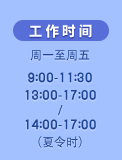防疫法规解读21:劳动用工(中英文)
来源:无锡律师协会 更新日期:2020-02-21 14:44:22 浏览次数:3222
What changes weremade extending the holiday and postponing resumption of work?
Enterprisesshall pay wages in accordance with the relevant provisions of wagepayment during business suspension period under the Regulationson Wage Payment of Jiangsu Province.Namely, if business is suspendedfor no longer than one wage payment cycle, the wages of employeesshould be paid at the standards as agreed in the labor contracts. Incase that the suspension is longer than one wage payment cycle,employees providing work are entitled to be paid with wages not lowerthan the local minimum wage standard; while employees not providingwork should be paid with living expenses, the amount of which is 80%of the local minimum wage standard. However, if enterprises negotiateearly annual leave or other kinds of leave with employees, the wagesshall be paid in accordance with regulations on relevant leave; ifenterprises require employees to provide work through working fromhome or other forms, the wages shall be paid in accordance withapplicable laws and regulations.
For enterprisesthat meet certain requirements and therefore are not restricted bythe order of postponing business resumption, if arranging employeesto work during such period, thewages of employees should be paid at the standards as agreed in thelabor contracts.If enterprises arrange employees to work on February 8 and 9 (daysoff) and cannot arrangeemployees to be compensated by taking equal day-offs within sixmonths, employees are entitled to double salary.
After February 9,for employees who cannot return to work timely due to the impact ofNCP outbreak, how should enterprises pay their wages?
If employees fail to return to work on time after February 9 due to theimpact of epidemic, firstly, the enterprises are allowed to makeoverall arrangement of leaves of such employees according toregulations of Wuxi Bureau of Human Resources and Social Security.For those who cannot provide work after all kinds of leave run out,or who otherwise cannot provide work, enterprisesshall negotiate with them referring to relevant provisions of wagepayment during business suspension period under the Regulationson Wage Payment of Jiangsu Province.If business is suspendedfor no longer than one wage payment cycle, the wages of employeesshould be paid at the standards as agreed in the labor contracts. Ifthe suspension islonger than one wage payment cycle, employees providing work areentitled to be paid with wages not lower than the local minimum wagestandard; while employees not providing work should be paid withliving expenses, the amount of which is 80% of the local minimum wagestandard. If enterprises require employees to provide work throughworking from home or other forms, the wages shall be paid inaccordance with applicable laws and regulations.
If enterprisesrequire employees to postpone resumption of workafter February 9 forthe need of epidemic prevention and control,for them who cannot provide work through working from home or otherforms, their relevant wages shall be negotiated between enterprisesand employees. Enterprises may negotiate early annual leave or otherkinds of leave with employees and pay their wages in accordance withregulations on relevant leave, orpay their living expenses during pending period in accordance withrelevant regulations.
For employees whoare confirmed or suspected of NCP infection or who had close contactwith the infected, and who cannot work normally due to quarantine orother emergency measures implemented by the government, shouldenterprises pay their wages during their quarantine or medicalobservation periods? Can enterprises terminate the labor contractswith them?
Foremployees (including seconded employees) who are confirmed orsuspected of NCP infection or who had close contact with theinfected, and who cannot work normally due to quarantine, medicalobservation or other emergency measures implemented by thegovernment, thewages of employees should be paid for such period.After the expiration of quarantine, medical observation, or otheremergency measures implemented by the government, for those employeeswho still cannot resume work because of medical treatment, theirwages shall be paid in accordance with relevant regulations onmedical treatment period.
Foremployees (or seconded employees) who cannot work normally due to theabove-mentioned reasons, enterprises should not terminate their laborcontracts (or send them back to the labor secondment unit). If anemployee’s labor contract expires during such period, the laborcontract shall be extended until the end of medical treatment period,medical observation period or quarantine period of such employee, orthe end of other emergency measures implemented by the government.
During thepostponement period, if enterprises require early resumption of workwhich violates relevant regulations, do employees have the right torefuse?
Yes. Enterprisesthat have difficulty in production and operation due to the NCPoutbreak can stabilized employment by reaching agreement with laborunion or employees. The options include adjusting wages, arranging torotate jobs and stagger day-offs, shortening working hours, andarranging employees to be pending for positions, etc. Enterprisesshould try not to lay off employees or try to lay off as lessemployees as possible.
Can enterprisesaffected by the epidemic implement comprehensive working hours schemewhen the postponed resumption of work period expires?
Yes. Enterprisesaffected by the NCP outbreak can apply to local authorities of humanresources and social security for implementing comprehensive workinghours scheme based on their needs of production and business, bysubmitting application form and consent form signed by relevantemployees through the website of “Government Service Platform ofWuxi Municipal City” (wx.jszwfw.gov.cn).
Can enterprisesaffected by the NPC outbreak make overall arrangements of rest andvocation for employees when the postponed resumption of work periodexpires?
Yes. Enterprises cancomprehensively arrange the annual leave and rest days within theyear, as long as they encounter any of the following situations:
A. Enterprises lack conditions to resume work and production due to the prevention and control of the NCP outbreak;
B. Employees returning to Wuxi from other places are quarantined at home.
C. Employees are unable to go to work as usual due to traffic control;
D. Employees fail to return to Wuxi to resume work in time due to other just causes;
E. Other applicable situations during the period for prevention and control of the NCP outbreak.
As required by thePTIDLaw,the SPCand SPP Explanation[2003] No.8and various regulations of local governments, employees from anNCP affected areaare unconditionally required to undergo a 14-day quarantine andobservation on return to work. For employees outside of anNCP affected area, a14-day quarantine period is also generally required. Afterpersuasion, an enterprise is obligated to promptly report to publichealth authorities, police, or local communities and neighborhoodoffices any employee failing to cooperate and violating local rules.Meanwhile, the enterprise may punish the employee for violatinginternal rules and regulations by refusing to follow the quarantine(including termination of labor contract according to Article 39 ofthe LaborContract Law).We recommend enterprises to take preventative measures beforeresumption of work including collecting basic information ofemployees from an NCP affected area and supervise employees underquarantine.
Will theenterprisebe allowed to terminate the labor contract if an employee neitherreturns to work on time nor asks for leave upon resumption of work?
Can an enterpriseadjust its employees’ wages unilaterally due to negative impact ofthe epidemic?
No, an enterprise isnot allowed to adjust its employees’ wages unilaterally using theeffect of the epidemic as the sole reason. According to Article 30and Article 35 of the LaborContract Lawas well as Article 2 of theMHRSS Notice [2020] No. 5,a reduction of workload and/or wages constitutes material amendmentsto the terms and conditions of the labor contract which requiresconsent of employees. Enterprises seriously affected by the epidemic,leading to reduced working hours and workload, can adjust wages afterreaching agreement with employees, labor union, or representatives ofemployees, as the case may be.
During NCPprevention and control period, what protection measures shouldenterprises undertake for employees?
According to theEmergencyResponse Lawand the PTIDLaw,anenterprise should establish a sound safety management system and takenecessary prevention and control measures to ensure safety andsanitation of its working environment. When a patient is confirmed orsuspected to have an infectious disease, enterprises must promptlyreport the condition of the patient to a nearby disease preventionand control institution or medical agency. In addition, enterprisescan temporarily refuse to allow an employee to resume work if theyare from or pass by major NCP affected areas. Enterprises can alsorequire employees to go under medical observation at designatedplaces and take other necessary preventive measures.
What shouldenterprises do if they suspect their employees are infected with NCP?
According to theprovisions of the PTIDLaw,the LaborContract Law,and the SPCand SPP Explanation[2003] No.8,enterprises are required to track staff epidemic infection status inreal time. Enterprises can require employees with suspicious symptomsof NCP to go to a hospital for examination and treatment, and shouldimmediately report to local authorities of prevention and control ofepidemic. The enterprise may report a non-cooperative employee topolice, which may further assist a medical institution inimplementing a compulsory quarantine treatment. Meanwhile, theenterprise may also punish the employee according to applicable rulesand regulations (including termination of labor contract according toArticle 39 of the LaborContract Law).
Can an enterpriserequire re-examination after an employee is cured of NCP or the NCPquarantine period for the employee has ended?
The enterprise canarrange re-examination with consent of the employee. However,according to the LaborLaw,enterprises have no right to impose re-examination duty on employeeswho are cured of NCP or uninfected with the NCP at the end of thequarantine period, as confirmed by medical institutions. Anenterprise can try to induce an employee to consent to re-examinationby arranging compensatory leave or statutory annual leave, providingtransportation and paying re-examination fees for them.
A. Periodical reduce of enterprises’ contribution rates of employees’ medical insurance. Enterprises’ contribution rate of employees’ supplementary medical insurance will be reduced to 0.2% in a phased manner until December 31, 2020. The policy of reducing the enterprises contribution rate of employees’ basic medical insurance to 7% will be continued.
B. Postponement of social insurance premiums payment. Enterprises, which are affected by the NCP outbreak and unable to pay social insurance premiums in full, may apply for deferring payment of premiums of pension insurance, unemployment insurance, work-related injury insurance and medical insurance for a maximum of six months without late fees. After the expiration of the deferred payment period, enterprises are required to pay the social insurance premiums in full; after the makeup, rights and interests of the insured will not be affected. Since January 2020, people without fixed employment who fail to pay insurance premiums in time can make up the payment within three months after the end of the NCP epidemic; after the makeup, their relevant records of personal rights and interests will not be affected.
C. Implementation of unemployment insurance premiums refund. Enterprises can get a refund of 50% of the unemployment insurance premium actually paid by them in the previous year, if they don’t lay off employees or lay off fewer employees. For enterprises facing temporary difficulties in production and business but with a chance of recovery, which insist on no layoffs or fewer layoffs, the refunds can be determined based on the local per capita unemployment insurance premium in last six months and the number of employees. The time limit for this policy is subject to state regulations.
D. Enhancement of employment protection. Wuxi Municipal Government will implement “One Policy for One Enterprise” strategy to provide precise service for enterprises. Local unemployed and people with difficulty finding jobs will be guided to get employed locally. Policies of providing one-off employment subsidies, rewards for replacing off-the-job training with work and employment assistance will be implemented. Online recruitment channels will be provided to promote remote interviews. External labor needs to be reserved in advance to meet the employment needs of enterprises and employees to the greatest extent as soon as the NCP outbreak ends. All municipal public service agencies will provide free recruitment services. Manufacturers of epidemic prevention products can be provided with temporary subsidies mutatis mutandis to public welfare positions.
E. Implementation of granting training subsidies. From the date when Wuxi activated first-level response to epidemic prevention and control to June 30, 2020, enterprises, which have been confirmed to provide pre-job training on professional skills and qualities for new employees who have been employed for more than one month, can be provided with training subsidies of RMB 300 per person in advance. Enterprises which independently organize or entrust training institutions to carry out online skill training for employees during the period for prevention and control of the NCP epidemic should get subsidies for the promotion of professional skills.
F. Support of stabilizing labor relations. The permissive conditions for implementing comprehensive working hours scheme will be relaxed for enterprises affected by the NCP epidemic. Relevant enterprises may maintain normal production and operation through centralized work and centralized rest. Enterprises affected by the NCP outbreak are encouraged to implement flexible employment policies and may adjust wages, rotate jobs and stagger day-offs, shorten working hours and arranging employees to be pending for positions after reaching consensus with employees.
| | |
| 1 | |
| 2 | |
| 3 | |
| | |
| 5 | |
| 6 | |
| 7 | |
Informationmentioned
above come from rules and regulations, as well as publicdocument or
explanation published by authorities, as of February 14,2020. This FAQ
does not constitute a formal legal opinion. Pleasecontact DeHeng (Wuxi)
Law Offices for specific legal advice.
(以上由北京德恒(无锡)律师事务所陆建栋、章程(女)律师供稿,非无锡市律师协会专业指引,仅供参考。)














